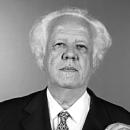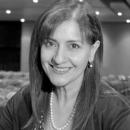[Op-Ed] John Leguizamo’s New Play Tackles the Challenge of Identity
MÁS EN ESTA SECCIÓN
The first thing I ever saw with John Leguizamo was Latin History for Morons. I had just been living in the US a few years, and was still trying to figure out what it meant to be part of the Latino community, and many people recommended it for someone curious to understand the community. Moments into watching it, I was completely riveted. It was entertaining, informative, and so inspiring. Even more, it was a real wake-up call for me, a moment of epiphany that was one of the first steps in my journey towards founding We Are All Human to launch the Hispanic Star initiative.
As a social marketer and activist, I always appreciate the way he connects with people. As one of his many, many fans, I always eagerly await his newest project and production, and admire his versatility. He writes, he acts, he produces, he sings. Last night, I saw “The Other Americans,” in Washington, D.C.
In his new play, John Leguizamo puts to use his many great gifts. He has already shown us his great humor, his deep love of the Latino community, and charismatic performances. Now, with the The Other Americans, we must also count him as a serious and exceptional playwright. One who has all the insights and nuance to create characters that bring us into their world immediately. The play is, at once, a very personal and universal journey into an American family, a window into the promise and pain of being “other,” but also a sensitive look at inter-generational conflicts that so many families face no matter where they were born.
CONTENIDO RELACIONADO

Leguizamo plays Nelson Castro, the patriarch of a Latino family in Queens, New York. As the owner of laundromats, he has carved out his own piece of the American Dream. He has worked hard, expanded his business, and has now moved his family from a largely Latino Jackson Heights neighborhood into the whiter and wealthier Forest Hills neighborhood. He has even built a lap pool in the small backyard to welcome home his son, who has been hospitalized.
Nelson strives to give his family the best he can, but the cost of upward mobility as he defines it is felt far beyond the financial one. By suppressing his Latinidad, he not only loses his identity, but remains an “other” in his new neighborhood. The losses cascade down through his family, harming them in tangible and emotional ways. The play shows the conflict between identity and success. Nelson has made his choice and he is a broken man. The wife, son and daughter, by contrast, are looking for a life that is authentic to who they are and where they can feel they belong.
This conflict is set up early in the play and I’m not going to give away much more. What I will say is that all the performances are extraordinary. Leguizamo has given his actors much to work with — well-formed characters, a gripping dramatic arc, a beautifully written script — and as an ensemble they work together beautifully.
The Other Americans is deeply rooted in Latino culture but it resonates universally. My admiration for John Leguizamo continues to grow as he continues to expand his artistic talents. Last year, it was my great pleasure to honor John with the Hispanic Star Award for Community Leadership. For, as I said that night, if there is a common thread in all that he does, it is that he is one of the most important voices of our time. A Hispanic Star shining bright. He is not content to watch history, he is changing it.
With John’s insightful and incisive writing, as well as the life the actors breathe into their characters and the script, The Other Americans is the most eloquent expression of what is truly the central challenge of our generation. How do we succeed without suppressing our Latinidad, without losing our roots and the values that give us our strengths? At the same time, how do we make sure that we are not too insular, too timid to expand our lives, our friendships, our world view? Great art, like John’s play, raises questions. It is up to us to find the answers.






DEJE UN COMENTARIO: